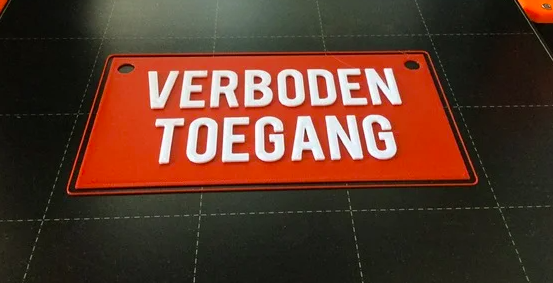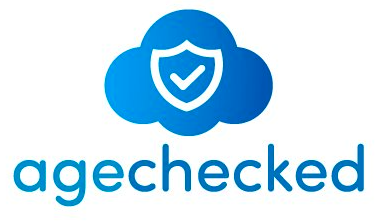To date, regulatory agencies have treated age verification as a standard yet static compliance discipline for online gambling.
However, ID specialist AgeChecked believes that mandatory requirements may soon change as Dutch regulator KSA enforces deeper responsibilities on age verification processes and record-keeping – marked as a key licensing condition for any incumbent joining the Netherlands online gambling marketplace in 2021
As European governments become more sensitive to age-related content and online environments, AgeChecked states that all compliance stakeholders should pay attention to the Netherlands’ acid test on age verification.
______________________
The two-month delay concerning the introduction of the Remote Gambling Act in the Netherlands has recently been in the headlines, with the anticipated date of entry now being 1 March 2021.
This means, should there be no further delays, that the online market will open six months later, on 1 September. The change has been implemented to ensure there is more time for all involved parties to adapt to the stringent new laws.
There are strict requirements concerning advertising, protecting players, preventing gambling addiction and combating gambling-related fraud and crime, as well as age verification.
Age verification has been a particular priority for the Dutch gambling regulator Kansspelautoriteit (KSA), ever since state broadcaster NOS ran a report on 31 August 2019 exposing the ease with which minors could gamble with 10 major online operators in the Netherlands.
The KSA even produced a video highlighting ‘The Truth Behind Online Betting’ to appeal to a younger audience. A number of reports followed over the subsequent weeks, increasing the pressure on the KSA and resulting in a number of questions being asked in the Dutch Parliament.
Reacting to this, on 5 December 2019, the KSA announced in a press release that all online gambling operators targeting the Dutch market should include “functional age verification software” from 1 January 2020.
Its announcement followed a letter sent by the Minister of Legal Protection to the House of Representatives three weeks earlier concerning this issue and the steps that would be taken to resolve it.
Citing player protection, it was stated that “preventing minors from taking part in gambling is an important priority of the KSA” and that age verification must be conducted before the completion of the registration process.
The KSA said that an objective means of proof must be used to verify age and that it must be clear to players how their age is being verified. A simple declaration by the player would be deemed insufficient.
At a Gaming in Holland breakfast meeting on 17 December 2019, two weeks prior to the age verification laws coming into place, KSA boss René Jansen urged potential licensees to check all new customers using the iDIN system to ensure all players were of legal gambling age.
As an additional remark, it was noted that databases should also be checked and existing customers verified before they could keep playing.
The iDIN system has been developed through a partnership with Betaalvereniging Nederland (the Dutch Payments Association) and the Dutch government. It enables the reliable verification of someone’s identity through their Dutch bank account. AgeChecked, the global provider of secure and anonymised online age verification services, now supports iDIN for age verification services of customers in the Netherlands.
Adopting a robust age verification process is important as the KSA stressed that failure to comply by 1 January 2020 could have negative effects once the new licensing regime comes into force. This includes being fined or even blacklisted.
The KSA went on to say: “Failure to verify age before the registration process has been completed also has consequences in the longer term.
“This violation is negatively taken into account at a later stage if an online gambling license is applied for in the context of the Remote Gambling Act. This law, which is not yet in force and is currently being developed further, makes online gambling legal under strict conditions.
“The expectation is that permits can be applied for from 1 January 2021 [since moved to 1 March 2021 as noted above]. License applicants are then tested for reliability, among other things.”
The key point, therefore, is that age verification for any operator looking to target the Dutch market should be taking place now and needs to be a key part of any launch strategy.
As part of the application process, operators will need to sign a number of statements, one of which will be confirmation that since 1 January 2020, they have been applying age verification procedures for all Dutch players. The exact wording of this text is unknown, but it is expected to be revealed by 1 November when a three-week consultation process is set to begin. As part of this process, the application form and details of any supplementary documentation required for the registration process will be revealed.
What is currently known is that operators must state they’re adherence to and show proof of age verification processes before receiving a license and if this statement cannot be verified, it would likely exclude an operator from being successful.
Furthermore, if an operator has made a false statement concerning age verification on the application form, this would be deemed a criminal offence and would almost certainly result in a license being refused or revoked. The company would then likely be blacklisted for at least ten years.
The KSA have extensive investigative powers and even have the authority to use mystery shoppers in the fight against illegal operators, so trying to game the system is unwise. Indeed, Jansen insists that the assessments of each applicant will be strict and will focus on far more than just advertising and addiction prevention.
Jansen continued: “For example, we will be evaluating your reliability, your integrity policies, the financial continuity of your business, the separation of player credits, your age verification procedures and so on. We want to know exactly who we’re dealing with before we issue an online gambling license; promises and words alone simply won’t cut it.”
Having a reliable and comprehensive age verification policy is therefore one key component in securing a license to operate in the Dutch market. However, it is important to note that the barriers to entry are incredibly high and the law very strict, so having a robust age verification policy alone won’t be sufficient to be granted a license to operate.
______________________










